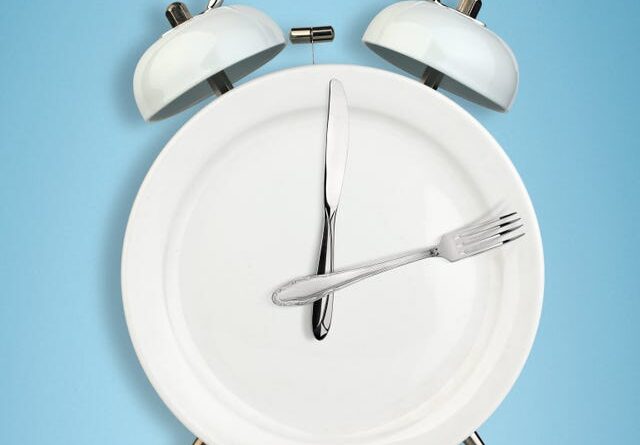Is Mealtime Important? New Research in Chrononutrition says it can
Back in the 1960s, American nutritionist and author Adelle Davis developed what may be one of the most enduring pieces of nutritional wisdom in decades. next: ‘Eat breakfast like a king, lunch like a prince and dinner like a pauper.’ Fun and memorable, of course. But since then science has not said much about its validity.
However, the emerging field of chrononutrition explores the complex interactions between food timing and our circadian system – the body’s internal “clock”.
What is Chrononutrition?
According to Dr Alan Flanagan PhD, nutrition scientist and lead researcher on this topic, our circadian system “regulates many bodily processes, including bowel function, hormone production, digestion of nutrients, absorption and metabolism.’
Your brain’s master clock is located in the hypothalamus, and it controls things like your body temperature and sleep patterns over a 24-hour cycle. You also have ‘ chronotype’, which refers to variations in this pattern – points during the day when you normally feel tired, active or alert, which may be influenced by your personal or work schedule. ‘In other words, people are often called early birds or night owls,’ says Dr Flanagan.
By better understanding your internal processes, you can help ensure that you are providing your body with the nutrients it needs when it needs it most. Dr. Flanagan answers your questions and gives you his tips for taking things.
Is It Good To Eat Breakfast Or Not?
Although skipping breakfast is sometimes linked to obesity, there is little evidence of direct cause and effect. ‘Controlled trials such as the Big Breakfast Study have found similar weight loss over four weeks between a morning and evening meal, when the two meals correspond to energy,’ says Dr Flanagan. .
However, Adelle Davis was right about some things. Dr Flanagan notes that there is strong evidence that glucose tolerance (how well we use sugar) varies throughout the day, with better glucose tolerance during the early hours of the day and reduced responses in the evening. If you are managing type 2 diabetes, or blood sugar balance is a concern, it may be a smart idea to make time for a large breakfast.
What Should You Eat For Breakfast?
Eating a breakfast rich in protein and carbohydrates can help you feel full throughout the day, which can be beneficial for appetite control and weight loss. And if muscle is your MO, there’s more reason to add a scoop of whey to your overnight oats: research published in Cell Reports found that eating protein at breakfast boosted muscle growth and strength compared to filling up on macros later in the day, due to the flexibility of protein absorption.
Does It Really Matter What Time You Eat Dinner?
Our food cravings change throughout the day, so if self-control is a problem for you, timing can help. A recent laboratory study compared two calorie-matched meal times: one eaten five, five and nine hours after waking up, and the other eating at five, nine and 13 hours. Dr Flanagan says: ‘The later meal schedule caused hunger and appetite. Our desires tend to increase throughout the day, he says, with a peak at eight o’clock at night. As a result, we can take a long time to feel satisfied when we eat dinner later in the day – a fact that anyone who has stayed up late at night will testify.
If you’re a late eater and consider yourself a night owl, changing that routine can be easier said than done. Try to progress your meals gradually, 30 minutes at a time. This change may be easier in the winter months: a study of mealtimes in different European countries found natural differences between northern and southern countries – with the first people having dinner in Norway (4pm) and the last -rao Spain and Greece (9pm) – suggesting that daylight hours have a role to play.
Is It Good to Eat on the Nightshift?
When your schedule doesn’t match your biology, that creates other problems. Around 27% of UK workers are night workers, according to 2022 figures from the Office for National Statistics. Studies have also shown that long-term night work can increase the risk of metabolic diseases.
“In fact, shift workers would try to maintain a daily diet, including during the night,” says Dr Flanagan. The ideal situation would be to avoid eating overnight, he says, by burning fat properly in the evening – although he admits that ‘this does not always work.’
If your schedule forces you to eat late, Dr Flanagan points to a small body of research that shows that low-calorie, high-protein meals and snacks, carbohydrates which are low in fat, may not be harmful to the metabolism of sugar and fat. Something like a bowl of Greek yogurt with some fruit might make sense, he suggests.

Kate is a fitness writer for Men’s Health UK where he contributes regular exercise, training tips and nutrition guidance. He has a post graduate diploma in Sports Performance Nutrition and before joining Men’s Health was a nutritionist, fitness writer and trainer with over 5k hours coaching in the gym. Kate is passionate about volunteering for animal protection, and when she’s not lifting weights in her garden, she can be found walking her rescue dog.
#Mealtime #Important #Research #Chrononutrition


